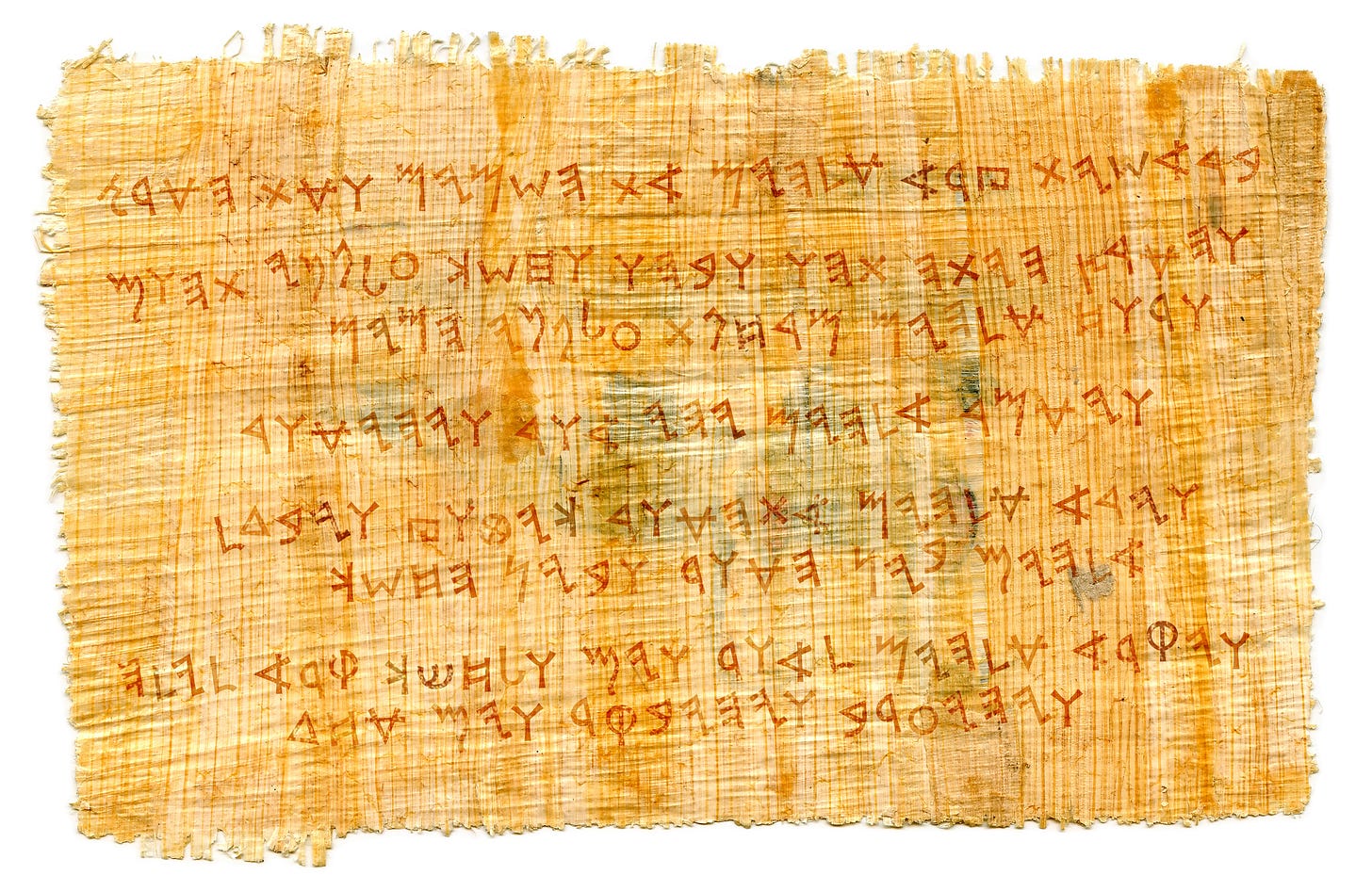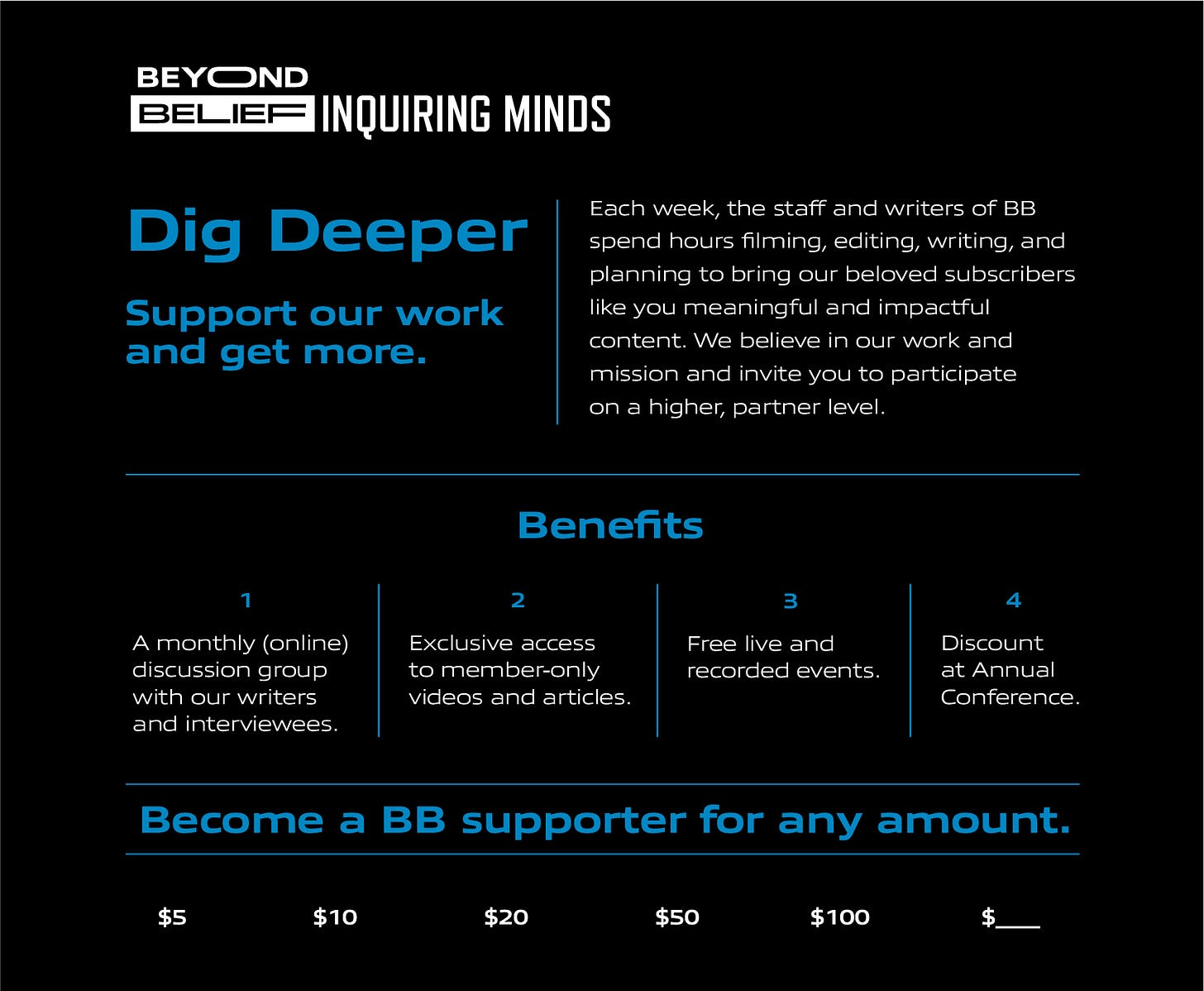The Invisible God and the Unseen Realm
How Adam’s Lost Knowledge Inspired the Search for Science
Image: wakingtimes.com
The prophet of the Early Jewish book 4th Ezra laments, “O Adam, what have you done? For though it was you who sinned, the fall was not yours alone, but ours also who are your descendants.”1 The idea of Adam’s sin has loomed large in Western history, exerting a complex influence on culture, inspiring generations of theological introspection, influencing ethical examination, and prompting political deliberation. 2As James Madison reflects in The Federalist, “If men were angels, no government would be necessary.”3
Beyond the influence of the idea of Adam’s sin on the history of the humanities, the tradition regarding the transgression of our first father also had a profound influence on the development of the natural sciences during the height of the Scientific Revolution. Indeed, one of the major motivations for the scientific enterprise during the Early Modern Period was the hope to regain the epistemological paradise that was lost when Adam’s mind—and the minds of his progeny—were irremediably muddled as a consequence of his fall.4
Adam’s Epistemological Prelapsarian Paradise
According to a prevalent Early Jewish tradition, God bestowed the first human being, Adam, with direct knowledge of the essences of created things. “God originally gave this knowledge to Adam as a gift,” and he granted such knowledge to him “after he created the animals.”5 One Early Jewish text, The Words of the Luminaries, from among the Dead Sea Scrolls reads: “God breathed into the first man and filled him with knowledge.”6 Another text describes how such knowledge, “protected Adam, the father of the human race” and “kept him from sin and gave him the power to rule everything…when he was alone on earth.”7
The Early Jewish Philosopher, Philo, describes how, “by breathing his spirit into Adam, God filled him with divine wisdom and a rational intellect that resembled God’s own mind.”8 In this Early Jewish conception, “the wisdom of Adam displayed itself to greatest advantage when he gave names to the animals.”9 According to this tradition, “the names of the animals were not the only inheritance handed down by Adam to the generations after him, for mankind owes all crafts to him, especially the art of writing, and he was the inventor of all the seventy languages.”
Beyond this, “God showed Adam the whole earth, and Adam designated what places were to be settled later by men, and what places were to remain waste.”10 The encyclopedic knowledge of Adam was the power behind dominion, but such natural knowledge and dominion were lost when Adam sinned. In the West, this Early Jewish tradition was taken up by Augustine who argued that Adam had a perfect knowledge of created things before the fall.
As Augustine writes in On Nature and Grace: “The nature of a human being was first created faultless…. But this nature of a human being, in which everyone is born from Adam, now needs a physician because it is not healthy.”11 Augustinian understandings regarding the original wisdom that was given to Adam and “the limitations of human knowledge in the wake of the Fall”12 were passed on to the thinkers of the Middle Ages and continued to persist in the background as the methods of modern science first emerged in the work of Nicholas of Cusa.
Sir Francis Bacon’s Recovery of Paradise Through Science
Sir Francis Bacon—one of the leading proponents of the scientific method in the 1500s—saw in the natural sciences “the prospect of restoring, or at least repairing, the losses to knowledge that had resulted from the Fall.” Bacon’s project to reform natural philosophy (aka science) was an inspired endeavor to determine whether the human mind “might by any means be restored to its perfect and original condition, or if that may not be, yet reduced to a better condition than that in which it now is.”13 Bacon believed that through applying the scientific method, humans could purge the mind of “those flaws introduced by Adam’s defection.”
Aspiring to accomplish “the true end and termination of error,” Bacon suggested that this could only be realized if knowledge was “discharged of that venom which the serpent infused into it.”14 For Bacon, explains historian of science Peter Harrison, “the historical figure of Adam played an important role…Since [Adam] had once commanded nature on account of his natural gifts, it was not unreasonable to hope for the partial restoration—possibly by artificial aids and assistances—of the abilities he had once exercised more fully.”15
In the 1600s, when Bacon’s intellectual heirs created the Royal Society, many of its founders similarly set out to formulate scientific methods and instruments that would enable humans to reach beyond the limits of their senses, their memories, and their minds—limits that they believed were a consequence of the sin of Adam. As Thomas Sprat, who wrote the first account of the Royal Society, explained: the Royal Society was formed to regain “the knowledge that Adam had once possessed.”16 Later in the seventeenth century when improved instruments to magnify the powers of the senses were developed, fellows of the Royal Society would recommend them as “devices capable of overcoming the limitations of fallen senses.”17
A Glimpse of Paradise in the Unseen World of Robert Hooke
Image: Robert Hooke, psicologiaymente.com
One of the improved instruments that permitted the human eye to gaze in awe at the handiwork of the Creator—as Adam once did before the fall—was the microscope. Robert Hooke—genius, polymath, laboratory assistant to the pioneer of chemistry, Robert Boyle, and “curator of experiments” at the newly formed Royal Society—developed a microscope using an oil lamp as a light source and a water lens to focus its beams in order to enhance visualization. Observing various forms of life through his microscope, Hooke discovered the smallest units of life. Naming these units “cells”—after the rooms of monks—Hooke beautifully illustrated and described these cells, paving the way for the new science of microbiology.
Hooke illustrated thousands of observations and performed hundreds of experiments designed to explore the secrets of nature “so that men might better understand God's creation.”18 In Hooke’s most famous work—the beautifully illustrated Micrographia—he showed that the unseen realm of the very small is as rich, complex, and beautiful as the one that meets the naked eye. Seeing his discoveries as one small step in the recovery of what Adam lost, Hooke reflects in the Preface to Micrographia:
By the addition of such artificial Instruments and methods, there may be, in some manner, a reparation made for the mischiefs, and imperfection, mankind has drawn upon itself, by negligence, and intemperance, and a wilful and superstitious deserting the Prescripts and Rules of Nature, whereby every man, both from a deriv'd corruption, innate and born with him, and from his breeding and converse with men, is very subject to slip into all sorts of errors. The only way which now remains for us to recover some degree of those former perfections, seems to be, by rectifying the operations of the Sense, the Memory, and Reason, since upon the evidence, the strength, the integrity, and the right correspondence of all these, all the light, by which our actions are to be guided is to be renewed, and all our command over things it to be establisht….And as at first, mankind fell by tasting of the forbidden Tree of Knowledge, so we, their Posterity, may be in part restor'd by the same way, not only by beholding and contemplating, but by tasting too those fruits of Natural knowledge, that were never yet forbidden. From hence the World may be assisted with variety of Inventions, new matter for Sciences may be collected, the old improv'd, and their rust rubb'd away.19
The Limits of Human Finitude and the Redemption of Science
The new natural philosophy of Hooke, Bacon, Boyle, Steno, and other early scientists was rooted in a view of knowledge that distinguished between a “realistic estimate of human capabilities” that took into consideration human limits, and the “dogmatic philosophy” of the Aristotelian tradition which “vastly overestimated the powers of the human mind.”20 This new scientific view held that “All terrestrial knowledge, including what Adam had known in paradise, was…necessarily limited by finitude” and the ingress of human mortality into the world.21
Thus, argued Robert Boyle, only with the redemption and resurrection of Adam’s race “would we come into possession of true science.” At that time, affirms Boyle, “our natures would be completely renovated,” and thus “our Faculties will be Elevated and Enlarged, and probably made capable of attaining degrees and kinds of knowledge, to which we are here but strangers.”22
4 Ezra 7:118.
Alan Jacobs, Original Sin: A Cultural History (New York: HarperOne, 2008); Alexander Toepel writes, “The Fourth Book of Ezra and 2 Baruch which were both written by Jews after the destruction of the temple, put great emphasis upon Adam’s sin and the way it affected humankind in general.” Alexander Toepel, “Adamic Traditions in Early Christian and Rabbinic Literature,” in New Perspectives on 2 Enoch: No Longer Slavonic Only eds. Andrei Orlov, Gabriele Boccaccini, Jason Zurawski, (Brill, 2012), 308.
James Madison, The Federalist Papers (1788) No. 51.
Peter Harrison, The Fall of Man and the Foundations of Science (Cambridge University Press, 2007)
Eric R. Montgomery, “'He Gave to Adam Knowledge’: A Competing Creation Tradition in Early Judaism and Early Christianity” The Journal of Theological Studies, 72:2 (October 2021), 676–708.
Montgomery, “'He Gave to Adam Knowledge,’” 687.
Louis Ginzberg, The Legends of the Jews (The Jewish Publication Society of America, 1968-1967) 59.
Montgomery, “'He Gave to Adam Knowledge,’” 693.
Ginzberg, 60.
Ginzberg, 60.
Augustine, De natura et gratia, cap. 3, n. 3, ed. J.-P. Migne, in: Patrologia Graeca, vol. 44, Paris 1841, 249.
Bacon, Novum Organum ii.lii (Works iv, 247–8). See Harrison, 4.
Bacon, Great Instauration, Works iv, 7.
Francis Bacon, The Great Instauration, in The Works of Francis Bacon, ed. James Spedding, Robert Ellis, and Douglas Heath, 14 vols. (London, 1857–74), iv, 7.
Harrison, 81.
Thomas Sprat, The History of the Institution, Design, and Progress, of the Royal Society of London. For the Advancement of Experimental Philosophy (London, 1667)
Harrison, 175.
F.F. Centor, Robert Hooke’s Contributions to Mechanics : A Study in Seventeenth Century Natural Philosophy (Martinus Nijhoff, 1970)
Robert Hooke, Micrographia (London, 1665, Preface)
Harrison, 204.
Harrison, 219.
Boyle, Excellency of Theology, pp. 154f. See also Boyle, Seraphic Love, Works i, 283–90; Boyle, Usefulness of Natural Philosophy, Works ii, 33.









Science should be the servant of humanity; humanity should never be the servant of science.
A perhaps interesting consideration is the question, is what we have now actually "Science" or is it a form of technological analysis?
Since our current scientific method - which David Bentley Hart coyly refers to as "the mechanical philosophy" - has no idea of the nature of the things it studies, perhaps "Science" should be reserved for something that can penetrate into the depths of reality?
If parapsychology is valid (and if we are committed to the mechanical philosophy, its validity is actually considerably greater than most medical or psychological research - and I saw this as one who has conducted psychological research), AND the mystics are correct that true gnosis involves direct apprehension of the nature of things, then it's not likely we're going to have a true science until parapsychological skills and gnostic intuition are sufficiently developed among a core of future scientists.